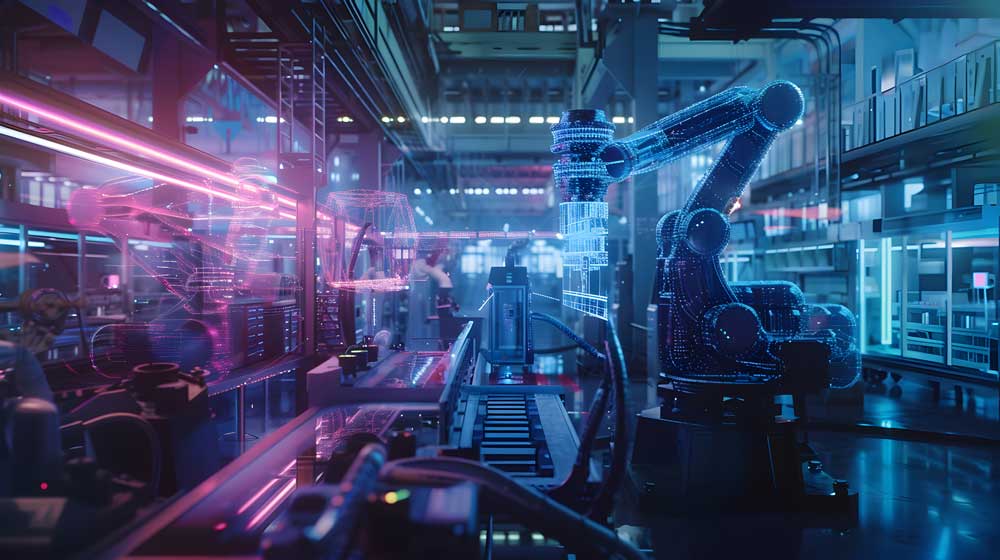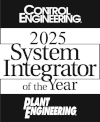
Author Contribution: E Tech Group Principal Developer, Will Eddins
AI & Process Control: Smarter Systems for Complex Processes
Industry is rapidly evolving as a result of huge pressure to scale throughput, production, processing, distribution, etc. This unrelenting pressure has resulted in impressive growth trends for many sectors, which has led us to the age of the digital transformation. As more companies adopt process automation controls for previously manual or partially-automated tasks, big benefits stand to be had.
This, especially when you consider that AI has become more accessible, allowing manufacturers, distributors, mission critical, and more the ability to implement AI in their process automation solutions. A step forward for tedious, sometimes unsafe tasks necessary to operations, allowing AI to step in and free up workers for more important tasks benefits every step of the value chain.
Let’s look at how process automation is enhanced by AI:
The Challenging Nature of Automated Process Control
Process control is a critical part of any industrial sector – data center automation, food and beverage manufacturing, pharmaceutical controls – these all require that certain processes are done to extremely precise and reliable standards. Failure to stay within proper parameters can result in anything from expensive waste of time and material to huge public health crises.
Despite the known benefits of automation, the application of AI to such processes can be daunting to operators who know these processes inside and out. To work with an automation system at an HMI is one thing. But to “give up control” to what some see as another sentient entity is another. It’s a devil-you-know mindset. This discomfort is likely the biggest obstacle to companies’ interest in making AI a part of their digital transformation.
Talents of AI in Machine Automation Solutions
We need to think of AI in a new way – as a way to augment human talent, optimize capabilities, and relieve labor pressure. Consider just a few ways AI can streamline complex processes and enhance benchmarks:
- Machine Learning
- AI uses algorithms that act as neural networks; they’re designed to mimic learning processes of the human brain. The ability to learn things like why temperature fluctuates in a cryo freezer or why the stabilizer in an alternative meat batch isn’t working correctly offer valuable insights. AI can provide options for solutions and even implement the process automation solutions itself.
- Reinforcement Learning
- Did you know you can Pavlov an AI?1 AI can be taught through a series of supervised trials and errors with operators “rewarding” or “punishing” the AI. You’re not actually punishing the AI; it’s simply given a success or failure response. But for those worried about handing over control to an AI, reinforcement learning is a way to enhance control of all steps of the process while letting AI do all the experimentation and precision tinkering.
- Machine Vision
- AI-driven machines that can see are a reality now, and have transformed certain sectors with functions like palletizing automation, sorting systems, and defect detection systems. Machine vision eliminates human error of tedious, repetitive tasks like these and adds significantly more sensitivity to detect problems with counting, packaging, sorting, etc.
- Digital Twin
- Perhaps one of the most advantageous developments in automation technology, both for its usefulness and its convenience, is digital twin. This AI-driven automation technology basically provides a simulated environment that is an exact digital replica of a facility. This provides opportunities to discover bottlenecks, and sources of weakness, run simulations of system upgrades or changes, and more, without disrupting operations.
- Predictive Data Analytics
- This one ties back to AI’s ability to learn. By gathering continuous data from every piece of the automation system and then performing analytics, AI identifies trends, patterns, cycles, etc. It uses this knowledge to predict things like time to equipment failure, upcoming maintenance needs, measuring the ability to scale, pivot, and other factors of business that could benefit from valuable insights sooner rather than later.
Benefits of AI-Augmented Process Automation
So, what do these talents have to offer companies looking into AI’s application in automated process control solutions? It’s not hard to think of several when you consider the implications of more data, more insight and more precise control over your automated processes. For instance:
- Increased Efficiency
- Augmenting automated process control with AI improves efficiency even more than traditional automation systems. Not only have you improved operations with precision control system integration, but you’ve added an intelligence to the mix that provides constant monitoring and smart responses.
- Reduced Cost of Operation
- Consider the fine-tuning that results in improved efficiency. Companies experience increased throughput, reduced waste, less energy use, better inventory management, etc., which all lead to reduced costs, freeing up capital needed to facilitate growth and scale capabilities.
- Improved Workplace Safety
- By leveraging AI for tasks that may be physically dangerous, like heavy lifting, working with molten material, or handling caustic chemicals, companies can reduce worker exposure. AI can also alert to hazardous conditions faster and more consistently than people by immediately responding to sensor information.
- Data-driven Insights
- AI’s industrial data analytics capabilities provide a constant source of insight into every facet of operations, leading to more educated decisions, which lead to more effective improvements. This can apply from anything from inventory management to labor organization, profit projections, and more.
- Adaptability to Complex Systems
- AI is flexible, allowing it to adapt in sectors with existing automation for complex processes like continuous batching or water treatment without need for a big control system upgrade or reconfiguration. And in any future upgrades/retrofits, AI can learn and adapt without starting from scratch.
Applications of AI in Automation & Controls
Every industrial sector can benefit from AI in process automation. Just a few real-life applications to consider:
- Machine vision allows robots to fetch and retrieve in expansive industrial settings like warehouses and distribution centers. It also allows them to count, sort, pack, and move pallets of heavy and/or dangerous materials.
- AI simulations can optimize oil drilling by monitoring geologic data in real time and predicting obstacles and hazards at potential sites. This also reduces the risk of dry wells and makes resource extraction more efficient.
- The ability to learn and tailor parameters can enhance chemical operations by maximizing yield and minimizing byproducts of reactions to reduce hazardous waste production, reducing carbon impact.
- Data analytics powered by AI can balance load in power plants, as well as predict maintenance and failures, allowing an offensive approach that ensures consistent power supply to the public. This could also apply to monitoring security in a data center’s automation system.
- AI all but promises consistent compliance and improved quality control in the food and beverage industries, as well as in pharmaceutical automation. These sectors require extreme precision with temperature, timing, batching, sterilization, etc., which AI can understand and respond to more quickly and effectively than people or traditional process automation solutions.
The industrial sector is integral to every aspect of life – metals for infrastructure, OEM for cars and machines, chemicals for products and medicine, and consumer products for food and necessities, just to name a few. AI is any company’s potential new best friend when it comes to squeezing every opportunity they can out of their facility’s automation capabilities.
Looking to the Future of AI-Enhanced Process Control
AI in process control was worth $1.85 billion in 2023. In just one year, that number shot up to $3.91 billion at a 111.4% compound growth rate. Projections indicate that market size will be almost 20x that by 2028 at $77.2 billion2. Right now’s the time to start thinking about implementing AI-driven complex process control solutions.
E Tech Group is a leader in North American industrial data analytics, automation, and control system integration services. As a Main Automation Partner, we’re always ready to help our clients stay ahead of the competition with unmatched automation and control system services. Our strategic brand of project management leverages collaboration and an eye on the latest in automation and AI technology, allowing us to offer clients advanced, custom process automation solutions tailored to their present and future goals.
References:
2https://www.thebusinessresearchcompany.com/report/ai-processing-control-global-market-report/
Speak with an Expert
Reach out to us here and someone will respond within 24 hours.
"*" indicates required fields
